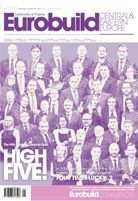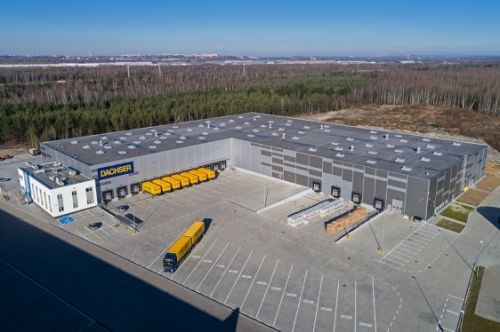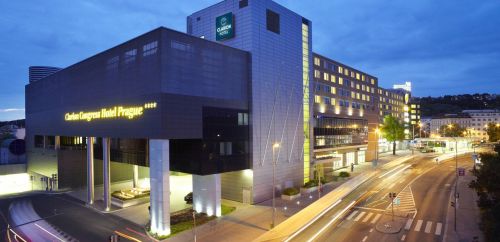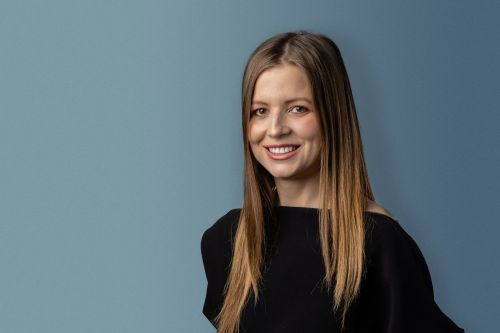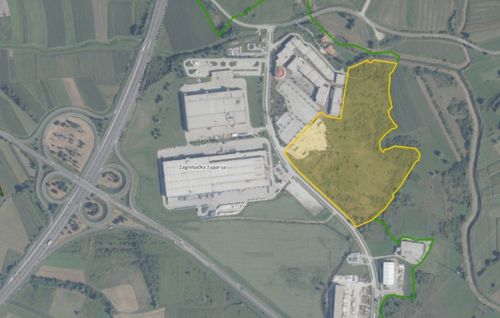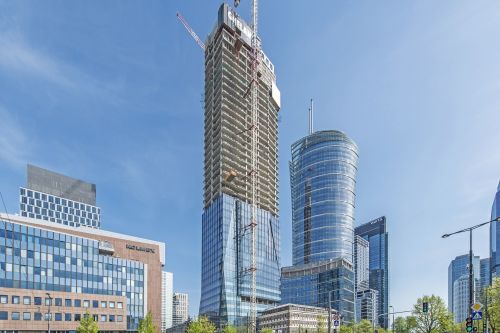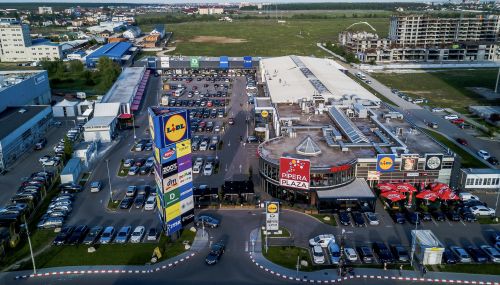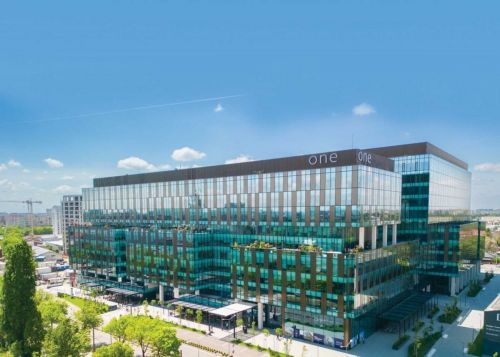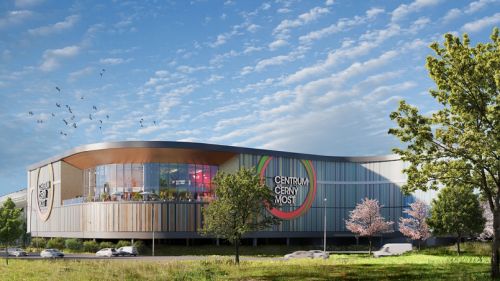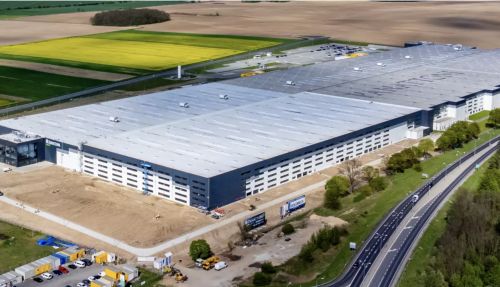Not writing his memoirs just yet
Eurobuild Awards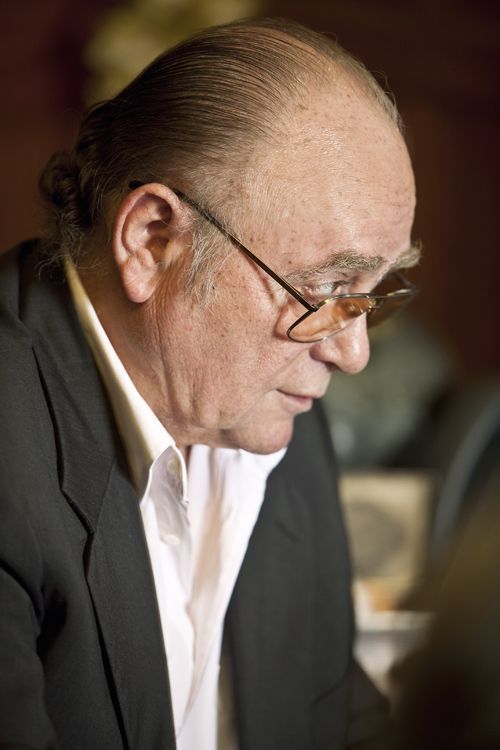
‘Eurobuild CEE’: You are one of the richest people in Hungary. How did growing up in a poor family influence your life?
Sándor Demján, the founder of the TriGranit Holding development company: Yes, I had a difficult childhood. When I was young I was angry with God – I didn’t go to church because I didn’t understand why God had punished me, even though I was such a good boy. But you can eventually take a philosophical approach to this and say that this is how God helped me. So I learnt to fight my way up and how to be grateful to those I received help from and how to express this gratitude. For everything – whether it was just a slice of bread or teachers spending their time with me on Sundays because I had to work during the week to support myself. In order to catch up with my education I had to go to school on Sundays. As a six or seven-year old boy I carried buckets of water and I’m grateful to those who offered to help me with these burdens.
What experiences are reflected in your character?
Your childhood has a huge impact on you. I always look at the modern ways of bringing up children with a wry smile as they tend to surround children with an invisible protective forcefield. Kids are pampered and because of this they are probably deprived of the will to fight for their future. As a child I had to be entrepreneurial. For example, I kept rabbits to make some extra money, which I shared with my extended family. I was ten or eleven years old at the time. When I grew up and I was in secondary school and college, I earned some cash from shovelling coal to support myself. When winter came I was praying for it to snow so I could make some more cash from clearing it. I also worked as a bricklayer on building sites. And that didn’t change – I have the utmost respect for physical work, but these days this isn’t held in the same esteem by people. In fact, every farmer should be kissed on the hands for the fact that they produce food. They deserve all our gratitude for this. Every dustman should also be bowed down to for removing the rubbish from our cities.
What else has shaped you?
Books. They are an important element conjoining my childhood with my later life. I love reading. I knew almost all the books by heart in the library in the village where I grew up. I read romantic novels, which are excellent fodder for the imagination. The protagonists of these books are always so brave – and they always help the poor. Back then all this played a big part in shaping me. In Katowice 20,000 children were given vouchers totalling EUR 1 mln at the opening of Silesia City Center. This gesture was received with some surprise and people were curious as to where the idea for this came from. It was similar in the case of Kraków and Poznań. When I was a child few people could afford to buy me such a present. I remember this and that’s why I want to share the money I earn with children. I also want to say that I am impressed by the activities of the various churches and social welfare centres that distributed the money. The money went to the people who indeed needed it most. The reaction of those who were given the presents was amazing, sending us several thousand thank you postcards. We had to set up a special cabinet at TriGranit, which still hardly had room for them all. We also established a partnership with the Kraków-based Siemacha association, which enables children from Poland to go on holiday to Lake Balaton, while those from Hungary go to Poland. During their visits the children often asked me about what you need to do to get rich. I replied that you need to read a lot of books, play cards and play chess. Chess helps to develop creativity and logical thinking, while cards teach people how to take considered risks. However, books are the most important because they teach you to have an imagination. I was particularly fond of romantic and French literature – and Hungarian literature in particular.
Does such romanticism help in running a business?
No, it doesn’t. They say that romanticism and business do not have a lot in common. However, I have to admit that I make business decisions based on my gut feeling. If a person I am in business negotiations with does not seem pleasant to me, there is something I don’t like about them, I will not reach an agreement in spite of the fact that the deal offered seems very interesting. Since I can afford such freedom in terms of financial clout, I apply this rule without exception. I believe that even the best business is not worth doing with someone who is unlikeable. Communication is difficult later on, there are uncertain situations...
So there must be quite a lot of likeable people in business, including in Poland...
TriGranit entered Poland because I believe that Poles are the closest nation to the Hungarians – to the question “which nation is the closest to your heart”, 90 pct of Hungarians would answer “the Poles”. This partly results from our common history, as well as recent history and our shared experience of the justly unmourned former political system. When entering Poland I was of course led by my gut instinct. The Polish market was not particularly interesting at the time but it has developed quickly. Now I have to compliment the Polish authorities on preventing the country from being dragged into the credit crunch mire. All the people of Poland should be grateful to the president of the National Bank of Poland for the devaluation of the złoty. Many opportunities were also seized that made it possible to emerge from all the turbulence unscathed and grow further.
You mentioned the former political system, which was imposed on Poles and Hungarians alike. What was doing business like in those days? How did you start out?
While studying at a trade and catering college, I received a stipend from members of a cooperative, and my first job was also in the cooperative sector. As early as back then I faced a multitude of pointless regulations, so I was even considering the option of becoming a journalist. But eventually I opted for the challenge and achieved great successes in a short period of time. This had a lot to do with my own way of doing business, the way I treated all those rules with great flexibility. As a result, we managed to become one of the best. At one point we constructed a new supermarket in just 100 days. From a small cooperative with only 170 employees I created a company of 1,000.
The next stage was the chain of Skála department stores...
Yes, which soon became very popular with customers. In contrast with the poor selection of low quality goods of state shops, we had a wide product offering, used new, flexible international methods and introduced a fresh advertising and marketing approach. We opened one store after another, ending up with a chain of 64 units nationwide. We even founded an independent wholesaler and international trading company and had our own fruit and vegetable supplier network. We created a chain that employed 8,000 people and serviced over 30 mln customers each year. The success of the Skála chain laid the foundations for my own reputation. I was beating the politicians in the popularity stakes and when ‘Time’ magazine wanted to interview somebody from the Eastern bloc, they chose me.
And what was the effect of all this?
One characteristic feature of the socialist political system then was the fact that older and older people were coming to power. I promised that I would operate in this system (Skála) for ten years. In the 1980s I was approached by George Soros with a proposal for setting up management studies courses. A little later reforms of the banking system in Hungary were been drawn up and I was offered the job of president of one of the banks (Magyar Hitelbank). I was able to achieve stunning results in one of the toughest periods of Hungarian economic history. Then came the transformation of the political system. Until then I was always somebody else’s employee. In 1990 I was contacted by a financial group from the United States and it proposed setting up a firm. They hadn’t the foggiest idea about the socialist system. At first they offered USD 50 mln and a free hand to manage the company. I responded that I would be fine with USD 5 mln. This is how I founded CEDC. At the time there was a company under the name of Kamaz (in Tatarstan), which was involved in the production of trucks, but it had heavy debts. The Russians invited tenders for the privatisation of the company. Many large and expensive audit companies came forward who wanted USD 1 mln for each month of cooperation. I said I would do it for free. It seemed very suspicious. Other companies claimed that three years was needed for the restructuring. I said that all I needed was half a year and if I failed to accomplish the task I was entrusted with I would pay them USD 2 mln. I asked for a 5 pct success fee.
So you were risking everything on this. Was it worth it?
It wasn’t entirely risking everything, because I knew what to do. I knew the reality of socialism and the psychology of the shortage economy. The official price of a Kamaz truck was RUB 25,000, but people were willing to pay six times this amount on the black market. We announced that those who bought shares would obtain the right to buy one truck at the official price of RUB 25,000 within five years. We sold the shares at a 600 pct rate. I used the profit not only to pay my American investors. I believed it was only fair if some of our commission was given back to the local community. We built apartments for the workers and an orphanage – and in Naberezhnye Chelny even a new mosque was constructed for the local Muslim majority. It was one of the best periods in my life.
And how did you get involved in real estate?
I always liked to work in development. Hungary’s first hypermarket was one of the 64 Skála units. At the time there were only a few hypermarkets with car parks located near main roads even in Western Europe. It was back then that I fell in love with property development. I had a good business partner, a Hungarian acquaintance from Canada called Otto Blau. Together we built Bank Center, Hungary’s first category ‘3A’ office building, and then the 75,000 sqm Polus Center. I learnt a lot from this friend of mine. He knew what he was doing because he was involved in military projects in his early youth and was very precise in terms of planning the construction process. Thanks to him the construction went exceptionally smoothly. So then I became an enthusiast of fast building. This is very important in our development activities even today. We constructed WestEnd City Center in Budapest and Polus in Bratislava in record time. We built Silesia City Center for more or less EUR 100 mln within eleven months and sold it for EUR 200 mln. The people who bought it from us built another section worth EUR 40 mln and sold the centre for EUR 420 mln. We built Bonarka in Kraków just as fast, even though this was constructed on the rather problematic site of a former chemical manufacturing plant. We dictated the same fast pace for Arena Centar in Zagreb. No one could bring themselves to believe that we would manage to rebuild Poznań’s main railway station before the European Football Championships in 2012, since in this case a highly complicated transport hub needed to be redeveloped. But Poznan City Center was constructed and opened just as fast. Actually, if you finish the construction phase of a project a year earlier, you earn one-year’s rent thanks to this. This is a great thing, how fast you can obtain a return on an investment. We have also always made sure we build at the highest level in terms of quality, always working with the best companies – and due to this approach the credit crunch has had little impact on our projects. Our origins are in retail and we build for retailers, thus we know what to build, how to build it and how to arrange the shops – as well as who will feel good with whom and so on.
And what new projects are you planning? For example, when will it be time for Warsaw?
We are very cautious developers. We have already learnt how to move around in Poland. We remember the crisis that affected our countries and that it also had a great impact on the development sector. For us it may not have been so severe, but some of our competition exited the market. I have to emphasise here that I am very proud of my team as we came out of the crisis unscathed. Particularly now, as I am receiving the Lifetime Achievement Award. This story is not really about me but about this great team behind me. I am only a trainer, I am responsible for how the team is built and what strategy they will adopt. However, it is not the trainer that scores the goals but the players.
But all of these rough diamonds need to be polished by somebody?
Yes, they do. You could look at this as somebody else polishing the diamonds while I just gather them all up together [laughter]. Some of the people have been working with me since the times of the trade cooperative, i.e. since the socialist era. We tested the Polish team out while building Silesia City Centre and this is when our friendship started. We have found a lot of fine people in this country. Tomek Lisiecki, who is the head of the team, was imported back from Canada to Poland. We can always compare the projects in the various countries we build in – and I can say that I am very satisfied with the work of the Polish team.
What do you focus on when employing people?
When I build a team I always have to find a good balance between creative and hardworking people. If there are too many creative ones, the problem is bigger than when there are too many hard working ones because we will not get far with only creative people. Besides, who the best goal keeper is, who is a good winger and who is a full back, etc., needs to be identified. This is very important when building a team because many people want to prove themselves as indispensable to the company in every position. If you have too many of such indispensable people, it would be better for them to close down the company because such a team will not get very far. So the structure of the team is very important.
Who do you like to see in a team?
I like to work with young people a lot and build a team based on such people, entrusting them with major tasks. Perhaps such as person is not prepared for such big tasks yet, but it is enough if they have a clear understanding of what needs to be done. And if somebody then accuses me of making the wrong decision, my response is that you cannot learn how to ride a horse from a book. You need to get on a horse and ride. It doesn’t matter if you fall a couple of times, it’s more important to get back on the horse and carry on riding. My rule is to allow people to make mistakes. If someone comes to me and says that they didn’t make any mistakes, they will certainly not be receiving any bonuses because this means that they probably didn’t do anything. However, it is important not to make the same mistake twice. If someone makes exactly the same mistake twice, then it’s goodbye – the door is open, please leave. If we have a team, the experience of the older staff is very important as well as the will, the dynamics and the creativity of the young – if these proportions are put together in the right way, you can perform miracles. If a company is led by an older person, they should have two younger ones to support them. There should be a balance all the time.
Do you often get angry with your staff?
No, I do not. I get angry with myself because it is the person who chose them who is responsible for any mess, not the person who was chosen. I am the one responsible at the end of the day. I chose this person, I put them in this position and so it is my fault if they fail. There are no sure bets here. Power corrupts, so there can be a variety of different consequences from appointing somebody for a given position.
In one of your interviews you expressed some rather strident opinions supporting old-fashioned educational methods involving corporal punishment. Such views are certainly not commonly held.
This is all to do with discipline and it is one of the reasons why we Europeans will not be catching up with the rest of the world any time soon. Here everyone is still complaining about the downturn. However, this is not the case because 70 pct of the world has never had it so good before. If we look at Asia – where’s the crisis? The young are very motivated in such parts of the world to push forwards. Nowadays you do not need to study at the best colleges, at British or American universities, to achieve success. But our children no longer have the fight in them. They have had it too good. I was beaten every day because I was not the best behaved child, but instead of doing any damage, it actually benefitted me.
And coming back to your business plans...
I am waiting for a boom on the real estate market, which will undoubtedly come. If interest rates are low, properties have the highest rates of return. I think we can expect a further lowering of interest rates and specifically commercial real estate will turn out to be the best investment. Eastern Europe still has a lot of catching up to do on this market because there is still a disproportion with Western Europe as far as the real estate sector is concerned. I think that the East is going to catch up with the West in terms of the standard of living, because people are more motivated here to achieve success.
Do you have a motto?
No, I don’t. I’ve not had enough time to think of one yet. It’s the same kind of thing when someone says that I should write my memoirs. Then I look at the person and I think: “My God, he must think I’m so old that I have to write my memoirs!” But there is still plenty of time for that.Hot Hungarian blood
Sándor Demján was born in 1943 in Hungarian Transylvania. He studied in a trade and hotel college in Budapest.
In 1965 he started to work for the Gorsium cooperative, of which he was made president in 1968. He was then employed by the Skála department store chain, which he became the president of in 1973. In the 1980s, together with Georg Soros, he established the country’s first management studies course; and in 1986 was made head of the first commercial bank in Hungary – Magyar Hitelbank. During the political transformation he stepped in to give the Kamaz truck factory in Russia a new lease of life. With the funds raised from this enterprise he was able to become independent and together with partners invest in setting up the Central European Development Corporation (CEDC) in 1999. TriGranit Development was established in 1996 and entered the Polish market in 2003. The company’s first project in Poland was Silesia City Center in Katowice. The company has also invested in Kraków, Poznań and Bydgoszcz. TriGranit’s most recent enterprise in Poland was Poznań City Center, which was sold to a consortium of funds belonging to Resolution Property and ECE Projektmanagement in early 2014.

























